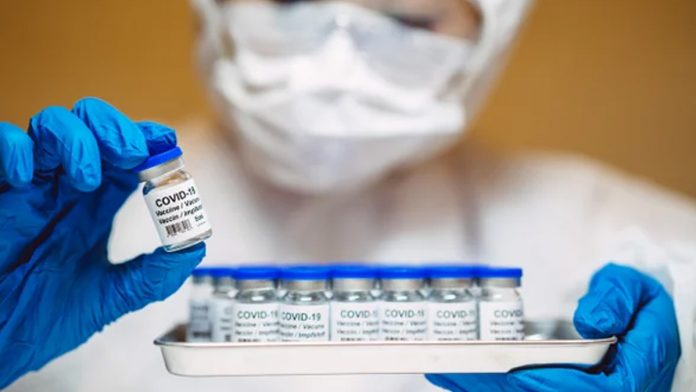KUALA LUMPUR – The Ministry of Health (MOH) today signed term sheet agreements with two vaccine suppliers, Pharmaniaga Lifescience Sdn Bhd (PLS) and Duopharma (M) Sdn Bhd for the procurement of 18.4 million doses of COVID-19 vaccine for 28.75 per cent of the Malaysian population.
MOH, in a statement today said PLS would supply 12 million doses of COVID-19 CORONAVAC, SARS-COV-2 Vaccine (Vero Cell) Inactivated produced by Sinovac Life Science Co. Ltd, which would be distributed in stages beginning April.
“Duopharma will supply 6.4 million doses of Sputnik V vaccine, produced by the Gamaleya Research Institute of Epidemiology and Microbiology in Russia. The vaccine is expected to be distributed in stages by end-March 2021,” it said.
MOH said for the COVID-19 CORONAVAC vaccine, SARS-COV-2 Vaccine (Vero Cell) Inactivated, each recipient will be given two shots 14 days apart.
With the 12 million doses, the MOH expects the immunisation programme to cover 3.2 million people or 18.75 per cent of the Malaysian population, aged 18 years and above.
“As for the Sputnik V vaccine, each recipient will receive two shots with 21 days interval between the first and second dose. The MOH expects that the vaccine will cover 3.2 million people or 10 per cent of the total population,” the statement said.
Health Minister Datuk Seri Dr Adham Baba signed the agreements on behalf of the MOH, while PLS managing director Datuk Zulkarnain Md Eusope and Duopharma Biotech Berhad Group managing director Leonard Ariff Abdul Shatar, represented the two companies.
The statement said the two companies would start supplying the vaccines after obtaining approval from the National Pharmaceutical Regulatory Division (NPRA) and the Drug Control Authority.
Previously, the MOH had signed agreements with Pfizer and AstraZeneca for the supply of 24.28 million doses and 6.4 million doses of vaccine, respectively.
The procurement of the vaccines will be included in the National COVID-19 Immunisation Programme which is currently in the final process of getting government approval.
Swab test centres
Meanwhile in a related development, the use of government buildings and facilities as swab test and temporary deployment centres of civil servants to services in need of additional health and safety support is among measures to be taken by the authorities in the implementation and management of emergency.
Chief Secretary to the Government Tan Sri Mohd Zuki Ali said it was also among the proposals discussed by the The Emergency Management Technical Committee and was agreed upon by the National Security Council Emergency Session.
The proposals were among the committee’s focuses on the mobilisation of the Federal and State Public Services’ resources, he said in a statement today.
The committee was set up to ensure the smooth implementation of the Emergency (Essential Powers) Ordinance 2021.
Mohd Zuki said the committee, which has to date, convened four times also focuses on the integration of public and private hospital services capabilities during the emergency, to ensure complete and integrated health access for COVID-19 and non-COVID-19 patients are guaranteed.
The integration is also aimed at optimising existing health resources and expertise to provide treatment to patients during the COVID-19 pandemic, he added.
Mohd Zuki said the integration would also see public hospitals, including university hospitals, Armed Forces hospitals, and private hospitals operating on a hybrid basis, based on the concept of cluster hospitals under the COVID-19 Integrated Control Centre.
He said the capacity of existing laboratories, especially at government departments and public universities, would be optimised to conduct mass COVID-19 detection.
“The mechanism to cover the treatment costs for COVID-19 patients at private hospitals by insurance companies is being studied by the Finance Ministry, Health Ministry, Bank Negara Malaysia and the insurance industry,” he said.
Mohd Zuki said the role of the private sector would be strengthen to treat COVID-19 patients who can afford their own medical and treatment costs.
Temporary detention depots
He said, another focus discussed was the use of National Service Training Programme (PLKN) camps, Kem Bina Negara and other suitable facilities as temporary detention depots for the use of the Prisons Department, Immigration departments, Royal Malaysian Police on rental basis, to ensure physical distancing is maintained.
Sixteen PLKN camps nationwide, have been identified for that purpose, he added.
Mohd Zuki said the Communications and Multimedia Ministry (KKMM) would collect views and feedback from the people on the emergency.
“KKMM will also establish a special channel to ensure accurate information related to the implementation and management of emergency is channelled to the people,” he said.
Mohd Zuki said the committee would continue to monitor matters arising from the emergency proclamation so that the best recommendations can be put forward for consideration of the National Security Council Emergency Session.
He stressed that the public services administration would not be disrupted and would run as usual during the emergency period, to ensure smooth government delivery services with full adherence to the standard operating procedures set.
Mohd Zuki also reminded all Malaysians to always verify the authenticity of any information they received as the spread of unverified information would affect the government’s efforts to fight the COVID-19 pandemic.
“Let us all continue to pray that the COVID-19 pandemic can be fully overcome to protect the prosperity, economic stability and public order,” he said.













